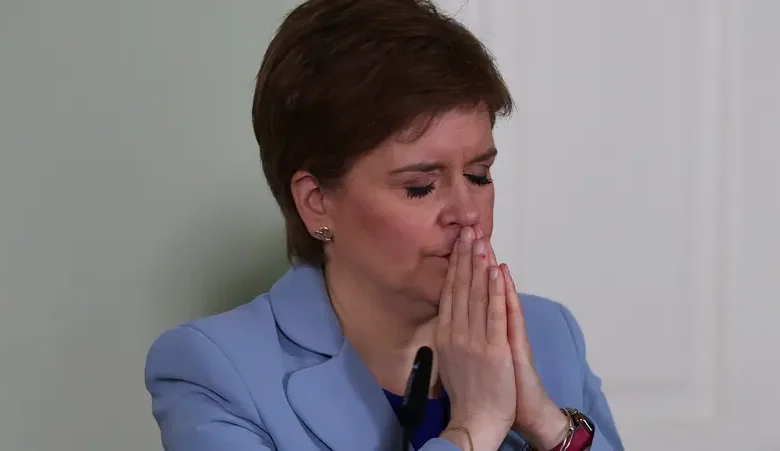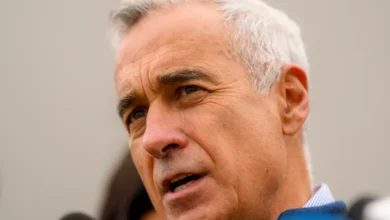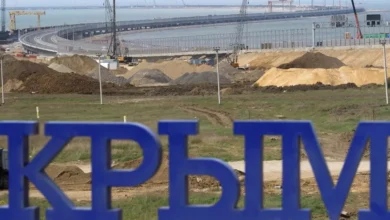Nicola Sturgeon resigns as Scotland’s First Minister

Scottish First Minister Nicola Sturgeon resigned after more than eight years as head of the country’s government and independence movement in a surprise move that will reverberate across UK politics.
Sturgeon, 52, has headed the semi-autonomous administration in Edinburgh since 2014.
The decision to step down comes after an unusually turbulent time for Sturgeon and leaves her Scottish National Party — and the independence campaign — looking for a new figurehead without a clear roadmap.
At a press conference in Edinburgh, Sturgeon said that she’d always felt that “part of serving well would be to know almost instinctively when the time is right to make way for someone else.”
“In my head and in my heart I know that time is now, that it is right for me, my party and my country,” she said. “It might seem sudden, but I have been wrestling it obviously with oscillating levels of intensity for some weeks.”
While the SNP still dominates Scottish politics, a controversial gender recognition bill prompted the UK government to block legislation passed by the Scottish Parliament for the first time.
The resignation also comes a little over a month before the SNP heads into a special conference to decide how next to pressure the UK to hold another independence referendum. Sturgeon has said she wants to make the next UK general election or the next Scottish Parliamentary election a de facto plebiscite on leaving the UK.
Sturgeon’s party has been split on how to pursue its flagship independence cause in the face of UK opposition to a referendum. The last vote, in September 2014, saw Scots opt to remain in the UK by 55 percent to 45 percent. Sturgeon took over as first minister and SNP leader in the wake of that result following Alex Salmond’s resignation.
Her departure means “that the nationalist movement loses its best advocate,” John Curtice, professor of politics at Strathclyde University, said in an interview.
“This is a reflection of the internal debate about independence in the SNP, rather than the gender recognition stuff. Certainly the next month will be about the internal debate in the nationalist movement about its strategic direction.”
Bookmaker William Hill named Angus Robertson as the immediate favorite to replace Sturgeon. A former UK parliamentarian, Robertson now serves in the Scottish government as cabinet secretary for the constitution and external affairs.
Under Sturgeon, the SNP triumphed in every election since the 2014 independence referendum, turbocharged by Scotland’s opposition to the UK leaving the European Union.
The only time the SNP secured a majority of the popular vote, though, was in 2015. A YouGov poll this month showed support for the SNP and independence had declined, with backing for the party on 44 percent compared with 50 percent.
Along with the controversy over trans rights, Sturgeon’s administration has been grappling with teacher strikes, waiting times in the health service and an inquiry into the procurement of ferries.
The UK government minister responsible for Scotland, Alister Jack, said now is the time for the administration in Edinburgh to “change course, and to drop its divisive obsession with independence.”
Even so, she remained one of the most popular politicians in the UK. She steered her nationalists to unrivaled dominance in Scotland and built on her popular support with her handling of the coronavirus pandemic.
“I am firmly of the view that there is now majority support for independence in Scotland,” Sturgeon said. “But that support needs to be solidified. My judgment now is that a new leader would be better able to do this.”










